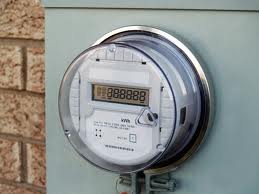 The Maryland Public Service Commission will be holding a hearing in Baltimore on August 28th at 2:00 PM regarding a series of fires caused by newly installed smart meters. Each of the four utilities involved with the smart meter installations is expected to testify. No other parties or private citizens will be allowed to testify. Because of the fire hazard, and the threats these meters pose to our health and privacy, Maryland Smart Meter Awareness (MSMA) is joining with the Anne Arundel County Council for the Environment (AACCE) in calling for a moratorium on all smart meter installations. Citizens of Maryland are urged to contact both the Public Service Commission and their state legislators to request a moratorium.
The Maryland Public Service Commission will be holding a hearing in Baltimore on August 28th at 2:00 PM regarding a series of fires caused by newly installed smart meters. Each of the four utilities involved with the smart meter installations is expected to testify. No other parties or private citizens will be allowed to testify. Because of the fire hazard, and the threats these meters pose to our health and privacy, Maryland Smart Meter Awareness (MSMA) is joining with the Anne Arundel County Council for the Environment (AACCE) in calling for a moratorium on all smart meter installations. Citizens of Maryland are urged to contact both the Public Service Commission and their state legislators to request a moratorium.
MSMA is joining with AACCE in seeking a moratorium on all smart meter installations in Maryland in the wake of the growing number of smart meter related fires around the country. Four Maryland utilities, BGE, Pepco, Delmarva Power & Light, and SMECO, are in various stages of replacing all the current meters with wireless smart meters. Wireless smart meters use a fundamentally different approach in monitoring energy usage than the traditional analog meters. No smart meter design has ever been tested and certified for safety by Underwriters Laboratories (UL) or any other similar agency accredited by the American National Standards Institute (ANSI).
There are two main reasons why the smart meters are causing fires around the country. The first is that the radiation they emit interferes with ground fault circuit interrupter (GFCI) sockets and similar devices by not letting them trip when there is an electrical problem, thus causing fires. The second problem is that due to design defects, their terminal lugs that plug into the meter box sockets tend to corrode. Due to the thermal resistance created by the corrosion, the electricity begins to arc and these arcs ignite the main insulation wiring causing electrical shorts that start fires. In traditional analog meters this is not an issue because they are manufactured to much higher standards. Traditional analog meters employ higher quality materials, thus have a useful life of fifteen to twenty years. The useful life of the typical smart meter is only three to five years.
Just recently PECO, a utility in Pennsylvania, halted its entire smart meter installation program after a series of fires. These meters are essentially the same meters SMECO intends to install in its Maryland service area. While the smart meters Pepco, BGE and Delmarva Power & Light are different, they all share the same defects.
MSMA President Jonathan Libber stated “These wireless meters have never been tested by competent independent laboratories to determine if they are safe. We need a moratorium because these smart meters are jeopardizing the health, safety, security and privacy of every man, woman and child living in the Pepco, Delmarva Power and Light, SMECO and BGE service areas.”
//essay-writ.org”;.



Richard Francke says
There are several things which need to be addressed. The safety issue is number One. No electrical product should be marketed in the U.S. that does not have the UL or similar agency approval. Second a product made to only operate 3-5 years is to little even for a blender or lawn mower. This is simply inferior design and cannot be accepted. Every know power or telecom product in the past 50 years was designed for 20 year service life. Thirdly, the issue of high levels of radiated signals in close proximity to these smart meters is a matter of record and have caused illness in some people.
The whole purpose for these meters is to raise electrical rates at peak demand times. There is no other real purpose.